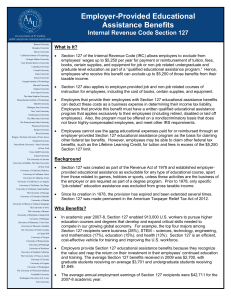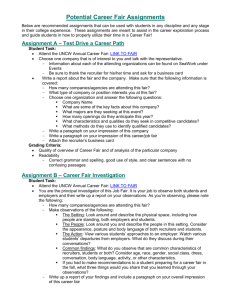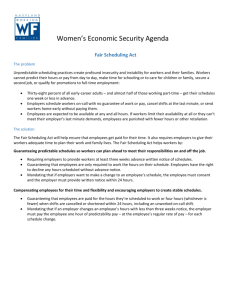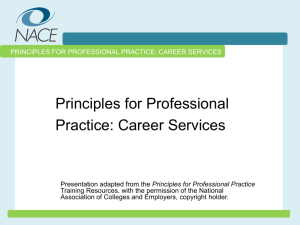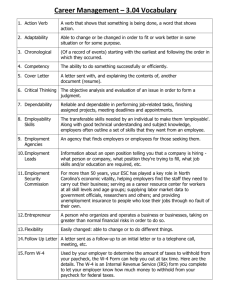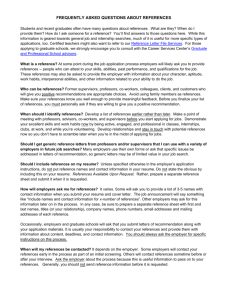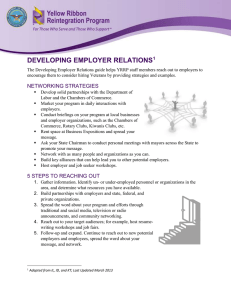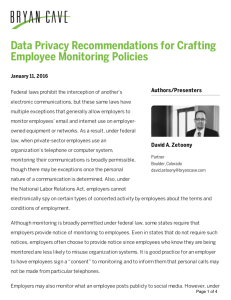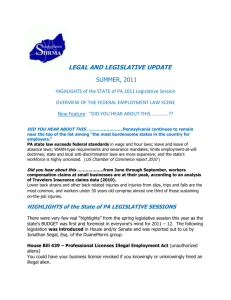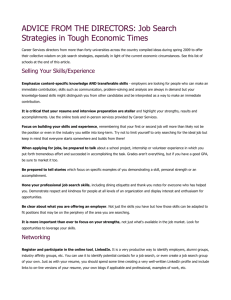Job References Must Be Letter-Perfect
advertisement
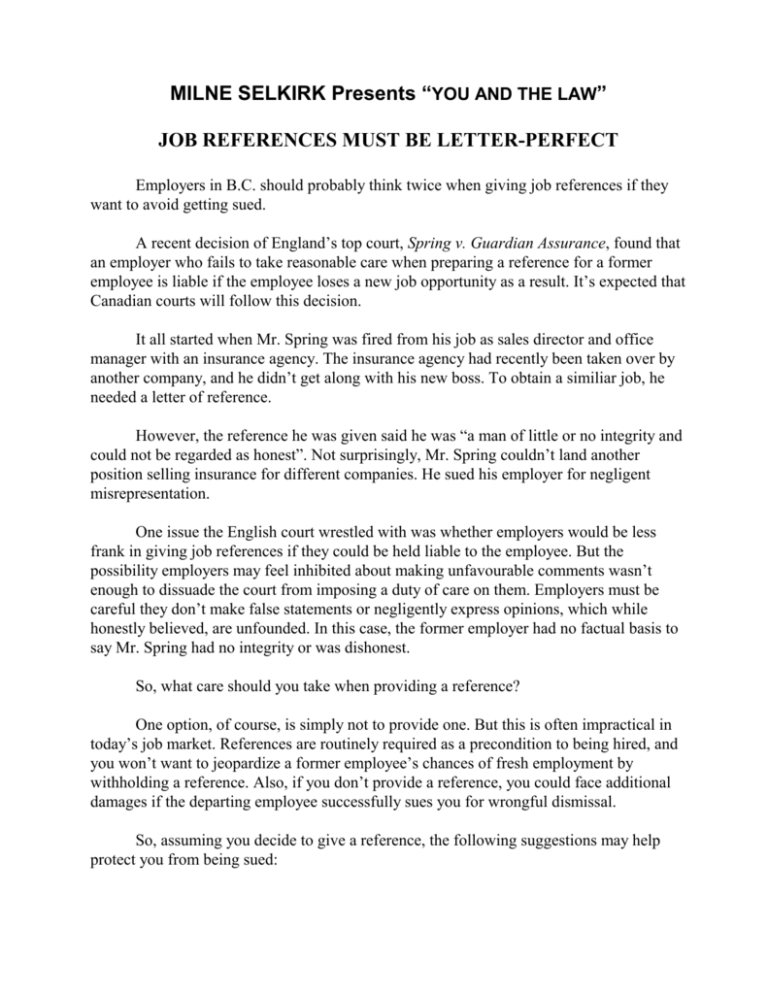
MILNE SELKIRK Presents “YOU AND THE LAW” JOB REFERENCES MUST BE LETTER-PERFECT Employers in B.C. should probably think twice when giving job references if they want to avoid getting sued. A recent decision of England’s top court, Spring v. Guardian Assurance, found that an employer who fails to take reasonable care when preparing a reference for a former employee is liable if the employee loses a new job opportunity as a result. It’s expected that Canadian courts will follow this decision. It all started when Mr. Spring was fired from his job as sales director and office manager with an insurance agency. The insurance agency had recently been taken over by another company, and he didn’t get along with his new boss. To obtain a similiar job, he needed a letter of reference. However, the reference he was given said he was “a man of little or no integrity and could not be regarded as honest”. Not surprisingly, Mr. Spring couldn’t land another position selling insurance for different companies. He sued his employer for negligent misrepresentation. One issue the English court wrestled with was whether employers would be less frank in giving job references if they could be held liable to the employee. But the possibility employers may feel inhibited about making unfavourable comments wasn’t enough to dissuade the court from imposing a duty of care on them. Employers must be careful they don’t make false statements or negligently express opinions, which while honestly believed, are unfounded. In this case, the former employer had no factual basis to say Mr. Spring had no integrity or was dishonest. So, what care should you take when providing a reference? One option, of course, is simply not to provide one. But this is often impractical in today’s job market. References are routinely required as a precondition to being hired, and you won’t want to jeopardize a former employee’s chances of fresh employment by withholding a reference. Also, if you don’t provide a reference, you could face additional damages if the departing employee successfully sues you for wrongful dismissal. So, assuming you decide to give a reference, the following suggestions may help protect you from being sued: 1. If you haven’t known the employee for long, state the short time period you’ve known the employee or the limiting circumstances for the reference. 2. Make sure you have the evidence to support any unfavourable comments you make. For example, before stating that an employee is habitually late, you’d want to have well-documented facts concerning the dates, expected start times of work or appointments, and actual time of arrival. 3. If you find it difficult to give positive opinions, consider restricting the reference to confirming an employee’s position, job duties and period of employment. 4. Consider appointing one person to be in charge of writing and giving references. Instruct him or her in the procedures to be followed to ensure reasonable care is taken. 5. And finally, consider getting a signed disclaimer of liability from both the employee and the person wanting the information about him or her. This article was written by Janice Mucalov, LL.B. with the assistance of Lawrence Coulter of MILNE SELKIRK. A version of this was previously published in the Langley Times. Copyright by Janice Mucalov. “You and the Law” is a registered trade-mark. Please call Lawrence Coulter if you have any questions or for legal advice.




